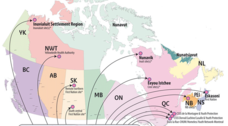2015-03-31
 The Douglas Institute and ACCESS are proud to host the first ACCESS network meeting on April 1 and April 2.
The Douglas Institute and ACCESS are proud to host the first ACCESS network meeting on April 1 and April 2.
The main objectives of this network meeting are:
- To review the current status (work done so far by all stakeholders), project objectives, deliverables and a plan for execution of the ACCESS project;
- To review the work done so far at each site and their respective state of readiness for execution of the project. It is important that we launch the transformation of service and research-evaluation at each site as soon as possible as per the plan laid out in the proposal;
- To inform all sites of the common and unique elements of other sites in order to promote a better understanding of the project and provide learning opportunities from across the network;
- To lay out a broad plan for service transformation, training-KT and research/evaluation for ACCESS;
- Introduction to youth engagement.
We are all looking forward to seeing you shortly!
About the project
The ACCESS Canada project consists of a Canada-wide research network, funded jointly by the Canadian Institutes of Health Research (under the Strategies for Patient Oriented Research initiative) and the Graham Boeckh Foundation, as the recently launched TRAM-Transformational Research in Adolescent Mental Health. Its goal is to demonstrate a transformation of the way we care for young people (age 11 to 25) with all forms of mental illness, based on currently available scientific knowledge. It will seek to fix a gap in health care nation-wide by developing and implementing strategies to ensure more young people have quick access to youth-friendly and flexible mental health services.
Its effectiveness will be tested across many provinces. Ultimately, ACCESS Canada could transform the way mental health care is provided to young people all across the country.
As a clinician-scientist at the Prevention and Early intervention Program for Psychoses (PEPP-Montréal) at the Douglas Institute, Professor at McGill University and Canada Research Chair in Early Psychosis, Dr. Malla and his team have developed an exceptional expertise in the field.


